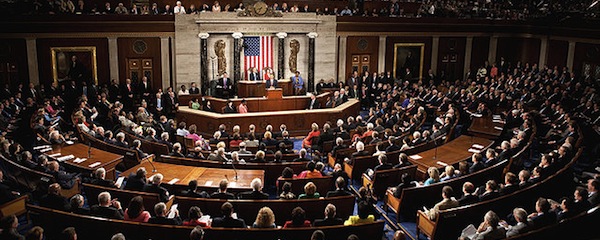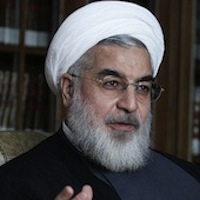We have a U.S. president who “immersed himself” in the details of nuclear enrichment technology to understand any proposed deal, we have a U.S. Secretary of State who has never done anything in his career to endanger Israel’s safety and has worked for many years to build a more secure and multilateral world, and we have a U.S. Secretary of Energy who is a nuclear physicist and assures the president and the public that the draft deal will ensure Iran would not be able build a nuclear weapon for more than a decade without being caught and stopped.
Nevertheless, according to Prime Minister Benjamin ‘Boy Who Cried Wolf Since the Early 1990s’ Netanyahu, “The deal which is proposed presents a real threat to the region and to the world, and will endanger the existence of Israel.” As usual, his overblown and hysterical political assessments are not backed up by the security establishment in Israel.
Ben Caspit, an Israeli political analyst, interviewed General Amos Yadlin on the Iran/P5+1 nuclear talks framework, for Al Monitor’s Israel Pulse:
On the evening of April 2, when Iranian Foreign Minister Mohammad Javad Zarif and the European Union foreign policy chief Federica Mogherini faced the press, Jerusalem was shocked into silence.
First, the very fact that a framework agreement had been reached ran counter to all Israeli assessments, according to which the deadline would be postponed once again to the end of June (the original deadline). Second, the principles of the agreement surprised Israeli officials and especially the political echelon.
[…]
On the morning of April 3, the day following the news of the agreement, Al-Monitor spoke with Maj. Gen. (Res.) Amos Yadlin, formerly the head of military intelligence. Yadlin was the Zionist Camp’s candidate for defense minister, but after the party’s loss he has gone back to his job as head of the Institute of National Security Studies. Yadlin has dealt during his career with three nuclear programs of states considered Israel’s bitter enemies. He was one of the pilots to bomb the Osirak nuclear reactor in Iraq in 1981; head of military intelligence at the time that Israel destroyed, according to foreign media reports, the secret Syrian nuclear reactor at Deir ez-Zor in 2007; and head of military intelligence in 2006-10, the peak years of the secret war between Israel and Iran over the Iranian nuclear program.
[…]
Al-Monitor asked Yadlin whether the agreement was good or bad. “It depends on how you look at it,” he said. “If we aspire to an ideal world and dream of having all of Israel’s justified demands fulfilled, then of course the agreement does not deliver. It grants Iran legitimacy as a nuclear threshold state and potential to eventually achieve nuclearization. It leaves Iran more or less one year away from a nuclear weapon, and Israel will clearly not like all of this.
“But there’s another way to look at it that examines the current situation and the alternatives. In this other view, considering that Iran now has 19,000 centrifuges, the agreement provides quite a good package. One has to think what might have happened if, as aspired to by Netanyahu and Steinitz, negotiations had collapsed. Had that happened, Iran could have decided on a breakout, ignored the international community, refused to respond to questions about its arsenal, continued to quickly enrich and put together a bomb before anyone could have had time to react. And therefore, with this in mind, it’s not a bad agreement.”
[…]
“Let’s not forget that Israel dubbed the interim deal reached in Geneva a ‘tragic agreement,’ and eventually it turned out to be a good interim deal. When there was talk of its abrogation, Israel was opposed. And another thing must be said: Contrary to Israeli assessments, the Iranians have adhered to all the conditions of the interim agreement, in letter and spirit, down to the last detail. That’s something one should also keep in mind. If they implement the principles of the agreement presented yesterday in the same way, then for the next 15 years they will be frozen at a point of being one year away from a nuclear bomb, and I think this is not a negligible achievement.”
Even so, as summarized in a current Haaretz headline, “Netanyahu tells U.S. TV networks he’s ‘trying to kill a bad Iran deal’“. Yep, he’s not even pretending to do anything but try to sink this deal.
Benjamin Netanyahu is a danger to international security and might just be a madman. At best, he’s a ruthless cynic who doesn’t care about how often he is proven wildly wrong about world affairs as long as he gets re-elected stirring up panic.









 But my analysis centered more narrowly on the role that calmer and reframed rhetoric could play in tamping down tensions and climbing “Iran back down off the ledge” that Rouhani’s predecessor Ahmadinejad had helped put it on. Careful and precise political communication, as I suggested then that it could, was indeed able to transcend some of the official political landscape (at home and abroad) and bring the powers and Iran close enough together to find a way toward a deal.
But my analysis centered more narrowly on the role that calmer and reframed rhetoric could play in tamping down tensions and climbing “Iran back down off the ledge” that Rouhani’s predecessor Ahmadinejad had helped put it on. Careful and precise political communication, as I suggested then that it could, was indeed able to transcend some of the official political landscape (at home and abroad) and bring the powers and Iran close enough together to find a way toward a deal. 


